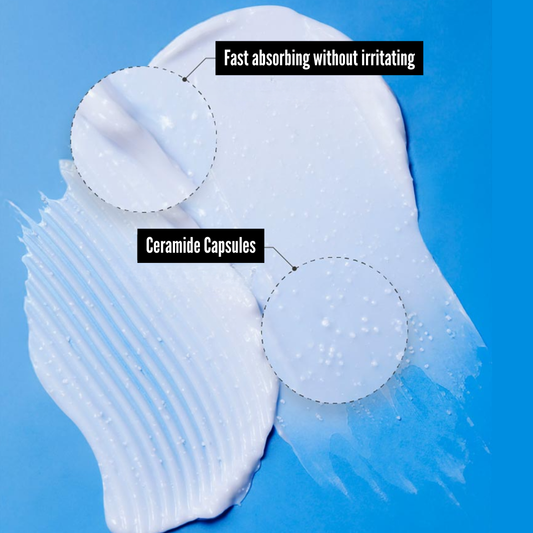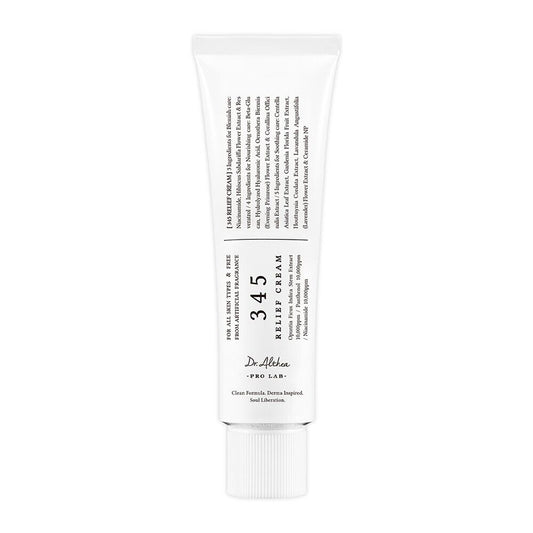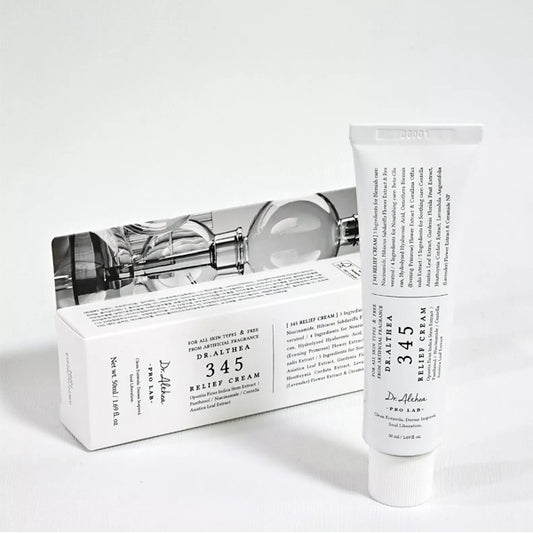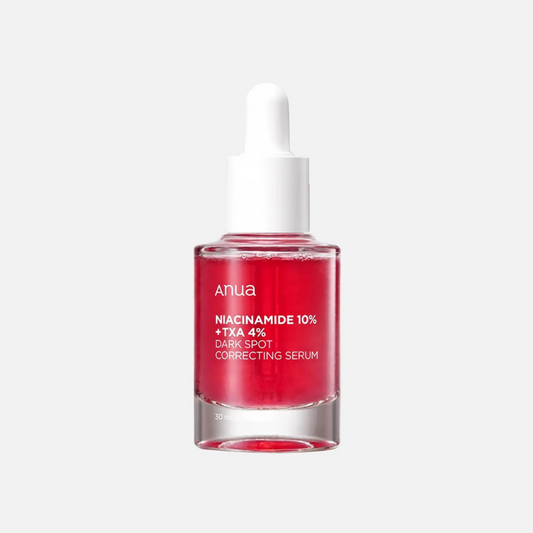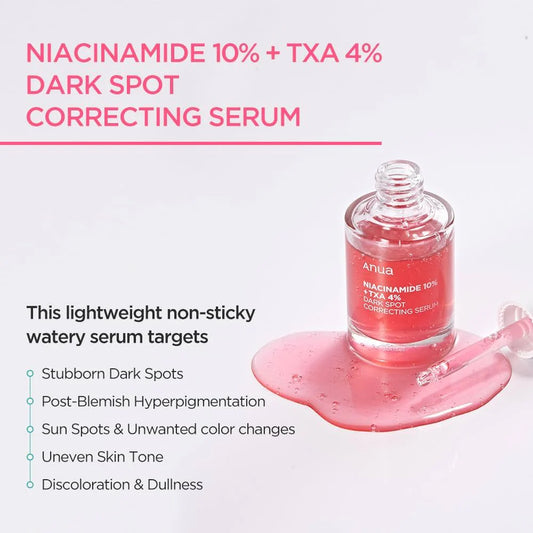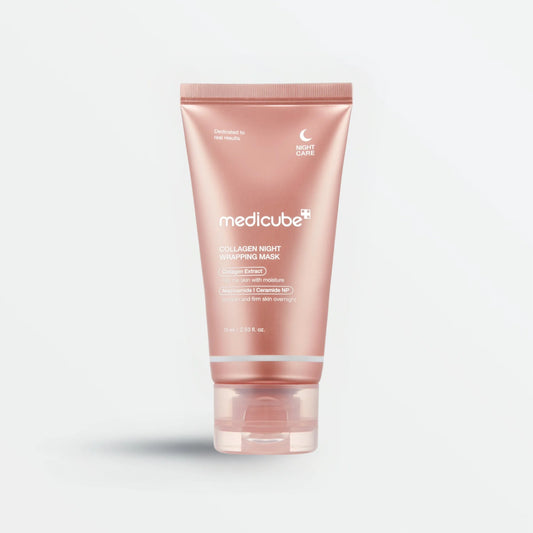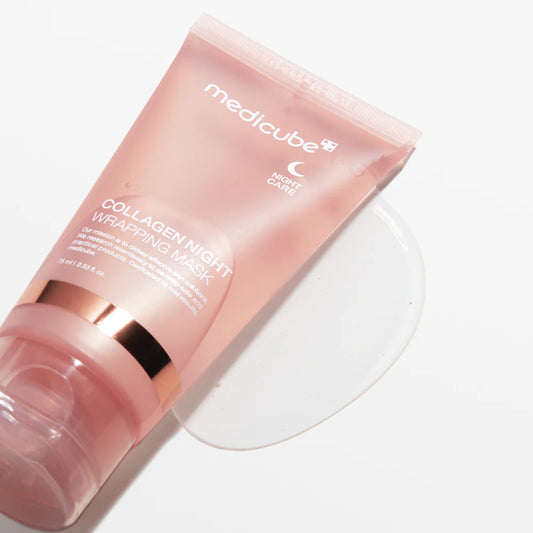
What Are Some Alternatives to Retinol?
Share
Why Retinol is Popular
Retinol is a form of vitamin A that has become incredibly popular in skincare because it can fight signs of aging, treat acne, and even out skin tone. It works by increasing how fast your skin cells turnover, boosting collagen production (a protein that keeps skin firm), and unclogging pores.
The benefits include:1
- Reduces fine lines and wrinkles
- Clears up acne
- Fades dark spots and age marks
- Makes skin look smoother and brighter
The Problem with Retinol
Unfortunately, retinol doesn't work for everyone. Retinoids can be harsh on the skin, causing side effects like dryness, burning, stinging, peeling, and sun sensitivity.
Common problems include:1
- Red, irritated skin
- Peeling and flaking
- Very dry skin
- Increased sensitivity to sunlight
Also, retinol is not recommended for use during pregnancy or breastfeeding because it can potentially cause birth defects.
If retinol causes problems for you, don't worry! There are several alternatives to retinol that offer similar benefits without the unwanted side effects.2
10 Great Alternatives to Retinol
1. AHAs (Alpha Hydroxy Acids)

What they are: Chemical exfoliants that come from plants and animals
What they do: AHAs work by dissolving the bonds between dead skin cells, revealing smoother, brighter skin underneath. They help improve skin texture, fade dark spots, and reduce the appearance of fine lines and wrinkles. AHAs are generally less irritating than retinol.3, 4
Popular types: The two best options are:
- Glycolic acid (from sugar cane)
- Lactic acid (from milk)
2. Peptides (Also Called Amino Acids)

What they are: Short chains of amino acids that serve as building blocks for proteins in your skin
What they do: Peptides help boost collagen production and improve skin elasticity. They can reduce the appearance of wrinkles and fine lines while hydrating and firming the skin. Peptides are gentle and suitable for all skin types, making them an excellent alternative to retinol.3, 4
Why people like them: They work well for sensitive skin and can show results in as little as two weeks.
Popular types:
- Hexapeptides
- Copper peptides
- Palmitoyl tetrapeptide-7
3. Bakuchiol

What it is: A natural ingredient extracted from the seeds of the babchi plant, which has been used in traditional Indian Ayurvedic and Chinese medicine for many years 5
What it does: Bakuchiol works similarly to retinol by stimulating collagen production and promoting cell turnover.1 Research published in the British Journal of Dermatology found it can be just as effective at reducing fine lines and improving skin tone as retinol.5 It can also:
- Reduce sun damage
- Improve wrinkles and creasing
- Even out skin tone
- Reduce inflammation
- Make skin more elastic
The best part: It gives you retinol-like results without the redness, peeling, and irritation. This makes it perfect for people with sensitive skin.2
Important note: While research is promising, bakuchiol has been studied much less than retinol, which has been researched since the 1980s.2
4. Niacinamide (Vitamin B3)

What it is: A form of vitamin B3, an essential nutrient your body needs
What it does: Niacinamide is a versatile ingredient that helps regulate oil production, minimize pores, and strengthen the skin barrier.6 When applied to your skin, it can:
- Improve uneven skin tone
- Reduce redness and soothe inflammation
- Help skin hold onto moisture
- Increase collagen production
- Protect against UV damage
Bonus: It's non-irritating and well-tolerated by sensitive skin, making it safe for almost everyone to use.6
5. Growth Factors

What they are: Molecules that stimulate various cellular processes and help your skin cells communicate with each other
What they do: Growth factors (like EGF - Epidermal Growth Factor) boost collagen and elastin production, promote wound healing, and improve your skin's tone and texture.
Good to know: Many brands now use plant-based versions that are thoroughly tested and proven effective. Growth factors are also friendly to those with sensitive skin, making them a worthy alternative to retinol.3
6. Vitamin C

What it is: A powerful antioxidant (L-ascorbic acid) that protects your skin from environmental damage
What it does: Vitamin C is excellent for:
- Brightening dull skin
- Fading dark spots and hyperpigmentation
- Boosting collagen production2
- Fighting free radicals (harmful molecules that damage skin)
- Evening out skin tone
- Protecting against environmental damage
How it compares: While it doesn't speed up cell turnover like retinol, vitamin C gives you a brighter, more even complexion and helps prevent signs of aging. It's well-tolerated by most skin types.6, 7
7. Azelaic Acid

What it is: A naturally occurring acid found in grains like wheat, rye, and barley
What it does: Azelaic acid is great for:
- Treating acne and reducing breakouts
- Fading dark spots and post-acne marks (hyperpigmentation)
- Reducing redness and inflammation
- Evening out skin tone
- Unclogging pores
- Gentle exfoliation
Why it's great: It's gentle enough for sensitive skin and can be used morning and night. It's especially good if you struggle with both acne and dark spots. Studies have shown it works well with other ingredients like niacinamide and vitamin C.6, 7
8. Resveratrol

What it is: A plant compound (polyphenol) found in grapes, berries, peanuts, and red wine
What it does: Resveratrol is a strong antioxidant that:
- Protects skin from environmental damage and free radicals
- Reduces inflammation and redness
- Helps firm and smooth skin
- Brightens complexion
- May slow down signs of aging
- Supports skin's natural repair processes
The benefit: It's very gentle and can be combined with other skincare ingredients easily. It's especially good for protecting skin from pollution and sun damage.
9. Glutathione

What it is: A potent antioxidant naturally produced by your body
What it does: Glutathione is excellent for:
- Neutralizing free radicals that damage skin
- Brightening the skin
- Reducing hyperpigmentation and dark spots
- Improving overall skin tone
- Promoting a more even complexion
The benefit: It's gentle on the skin and suitable for all skin types.3, 4
10. Tranexamic Acid

What it is: A synthetic derivative of the amino acid lysine, originally used as a medical treatment but now popular in skincare
What it does: Tranexamic acid provides powerful anti-inflammatory action and is especially effective for:
- Treating melasma (a common type of dark patches on the face)
- Reducing hyperpigmentation and dark spots
- Fading post-inflammatory pigmentation (marks left after acne or skin injury)
- Brightening and evening out skin tone
- Calming the skin and restoring the skin barrier
- Blocking the transfer of pigment to upper skin layers
How it works: Tranexamic acid inhibits pigment production in melanocytes (pigment cells) and modulates blood flow, which plays a role in pigmentation. It can be combined with other pigment correctors including retinol, azelaic acid, vitamin C, and niacinamide.8
Why dermatologists like it: It represents one of the biggest breakthroughs in treating stubborn pigmentation, particularly melasma, in the past decade.
Important notes:
- Topical creams can be used up to twice a day
- While gentle for most skin types, those with very sensitive skin should start slowly
- The oral form (taken as a pill) is considered more effective than topical creams, but must be prescribed by a doctor
- Not recommended for people with blood clotting disorders
Important Reminder: Always Use Sunscreen!
Whether you use retinol or one of these alternatives, you MUST wear sunscreen every day. This is extremely important because:
- Many of these ingredients make your skin more sensitive to the sun
- Sun damage can undo all the good work these products do
- Retinol especially makes your skin thinner and more vulnerable to sun damage by increasing cell turnover
What to do:
- Use at least SPF 30 every day, even on cloudy days
- Reapply throughout the day if you're outside
- If you use retinol, apply it at night only (sunlight breaks it down and makes it less effective)
- Pay close attention to treating the areas where you apply these products
Retinol can make the skin more sensitive to sunlight, increasing the risk of sunburn and damage. This is one of the primary reasons many of these preparations are recommended for nighttime application.1
The Bottom Line
Just because you have sensitive skin or can't tolerate retinol doesn't mean you can't have effective anti-aging skincare! There are plenty of alternatives that can provide similar benefits without the harsh side effects. Whether you choose bakuchiol, AHAs, peptides, vitamin C, niacinamide, or other alternatives, you can still achieve radiant, youthful-looking skin.
Try different options to see what works best for your skin. Remember, everyone's skin is different, so what works for your friend might not work for you—and that's completely normal! If you're unsure which product to try, consider talking to a dermatologist who can recommend the best option for your specific skin type and concerns.
Resources and References
This article is based on information from reputable medical and dermatology sources:
- Healthline: How Does Retinol Work on the Skin? (https://www.healthline.com/health/beauty-skin-care/how-does-retinol-work)
- KIN: Retinol and breastfeeding: Is it safe to use? (https://kinfertility.com.au/blog/retinol-breastfeeding)
- Westlake Dermatology: Can’t Tolerate Retinol? Try These 6 Great Alternatives (https://www.westlakedermatology.com/blog/retinol-alternatives/
- Board Certified Dermatologists: [Retinol Alternatives](https://www.westlakedermatology.com/blog/retinol-alternatives/)
- Harvard Health Publishing: [Bakuchiol: Does it make skin look younger?](https://www.health.harvard.edu/staying-healthy/bakuchiol-does-it-make-skin-look-younger)
- PubMed Central (National Institutes of Health): [Evaluation of Niacinamide, Vitamin C, and Azelaic Acid](https://pmc.ncbi.nlm.nih.gov/articles/PMC11892338/)
- PubMed Central (National Institutes of Health): [Topical Azelaic Acid and Other Acne Treatments](https://pmc.ncbi.nlm.nih.gov/articles/PMC7193765/)
- Dr. Davin Lim, Board Certified Dermatologist: [Tranexamic Acid](https://drdavinlim.com/a-z-skin-care/tranexamic-acid/)
Medical Disclaimer: This article is for informational purposes only and is not intended to substitute for direct medical advice from your doctor or dermatologist. Always consult with a qualified healthcare professional before starting any new skincare routine.


